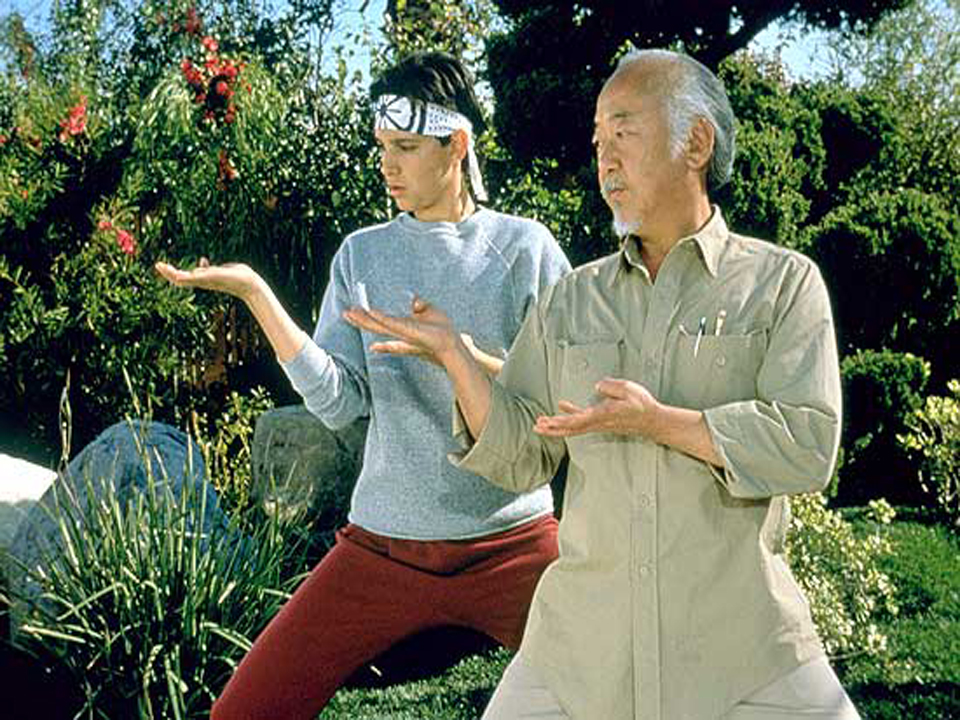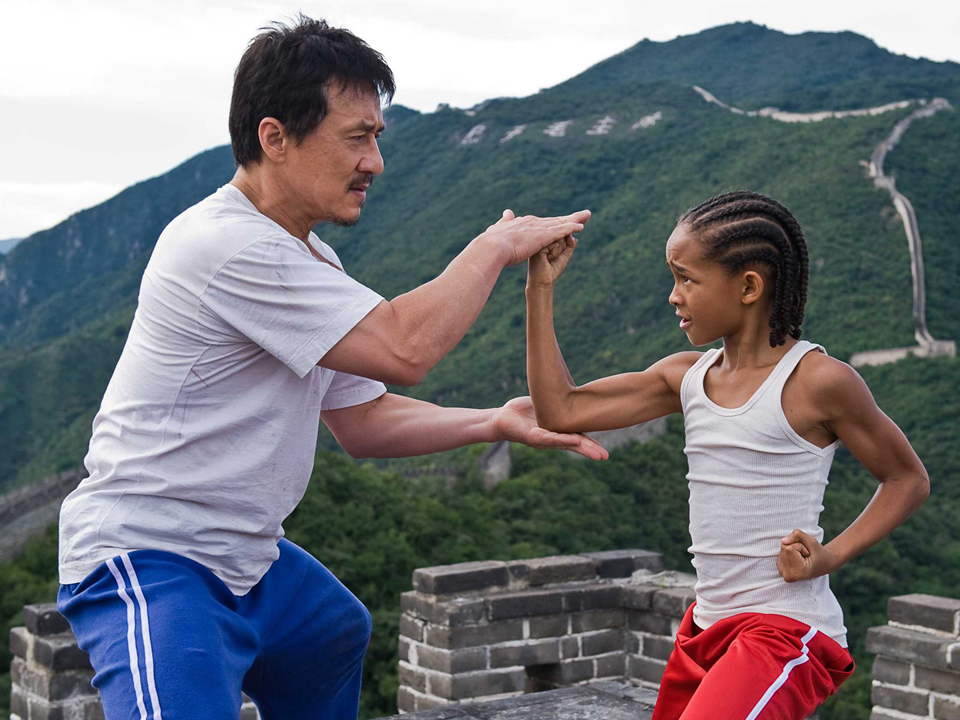Filtered By: Lifestyle
Lifestyle
Throwback Theater: Kicking back with ‘The Karate Kid’—both of them
When it comes to narratives, it’s hard to go wrong with a good underdog story. From “Rocky” and “The Mighty Ducks” to “Cinderella Man” and “Coach Carter,” cinema is replete with tales of the unlikeliest individuals (or teams) battling against all odds to win the game and/or the respect of their opponents.
Which brings us to 1984’s “The Karate Kid.”

As Miyagi, Pat Morita displayed a quiet dignity that made you believe the man was a karate master. All photos courtesy of Columbia Pictures
As the film opens, we are introduced to Daniel LaRusso (Ralph Macchio, “The Outsiders”), a New Jersey teen newly-moved to California due to his mother’s work. As he faces the challenges of fitting in at his new high school, Daniel draws the ire of local bully Johnny (William Zabka). Following a series of increasingly violent encounters with Johnny, Daniel enters into the tutelage of his building’s elderly handyman, Mr. Miyagi (Pat Morita, “Happy Days”), to learn the ways of karate in order to protect himself. As Daniel struggles to learn under Miyagi’s unorthodox training methods, events will come to a head when he faces Johnny at the upcoming All-Valley Karate Tournament.
Whether you watch it as a coming-of-age tale, an underdog story, or just a well-made family drama, “The Karate Kid” is as formulaic as they come, yet it somehow just works. Made in the wake of one of the most cynical decades in Hollywood history, “The Karate Kid” wears its crane-kicking heart on its sleeve. Between the earnest performances (Morita’s turn as Miyagi earned him an Academy Award nomination) and solid direction by John G. Avildsen (no stranger to such material, having won an Academy Award for directing “Rocky”), “The Karate Kid” resonated with audiences worldwide to the tune of $90 million (from a budget of $8 million).
The film would go on to spawn three sequels, the first of which, 1986’s “The Karate Kid, Part II,” rode high off the first film’s good will to earn $115 million (and made Peter Cetera’s ‘The Glory of Love” a cheesy radio staple). Sadly, 1989’s exceedingly dull “Part III” would prove to be the nail in the coffin for this iteration of the franchise, to say nothing of the short-lived animated series and accompanying action figure line also released that year. Producers tried to revive the film series with 1994’s oft-forgotten (with good reason) “The Next Karate Kid,” which tried pairing Morita (the only actor returning from the first three entries) with a new student played by a young Hilary Swank (“Million Dollar Baby”).
Which brings us to 2010’s “The Karate Kid.”

Jackie Chan parlayed his comedic image to play a grizzled kung fu master in the surprisingly good 2010 remake.
When it was announced that “The Karate Kid” would be remade starring action superstar Jackie Chan alongside Will Smith’s son, Jaden, industry buzz was rife with skepticism, owing more than a little to the fact the original title would be retained— despite the new film’s being set in China, to say nothing of Chan’s being a kung fu expert. At any rate, it seemed a long shot that the first film’s now-iconic mentor-mentee relationship could ever be duplicated.
But, in true underdog fashion, the 2010 remake defied expectations by winning audiences over with its beautifully shot and updated take on the classic story. While the title still didn’t make a lick of sense in the context of the now-kung fu-based-narrative (despite a half-hearted effort to justify it in dialogue), the film was simultaneously reverential to the source material while firmly establishing its own unique identity.
So how do the two compare?
As Daniel, Macchio is likeable enough, if understandably angry and frustrated at the situation he finds himself in. As the 21st century version, Smith’s Dre is decidedly younger, but no less mad at the world than his predecessor. Both just want to make friends with a pretty girl, get by in school, and get home without receiving a beating from the neighborhood bad boy.
As the masters, Morita and Chan excel in delivering unexpected nuances and pathos to their roles that could have very easily degenerated into racial stereotyping and camp. Of course, it is entirely possible that the impact of each man’s performance is increased due to the unique ways each actor chose to shed their (previous) reputations as mainly comedic actors.
As Miyagi, Morita makes up for his real-life lack of martial arts prowess with a palpable sense of dignity, only allowing his emotions to show during a drunken night where we are given a glimpse into his character’s tragic backstory. Chan, meanwjile, is equally effective as the grizzled building caretaker whose true colors only show when he finally unleashes his inner kung fu fighter.
While the 2010 version is certainly better shot (with better fights, to boot!), the martial arts mayhem implied by the shared title is a secondary component to both films. The main attraction here, as it was in 1984, is the mentor-mentee relationship (and chemistry), and the friction caused by the differences in their respective backgrounds.
Now, one has to admit, the concept of the weakling who learns to beat the bully in a sporting competition may come across as well-worn (and even cliché), but here’s the thing: it was just as cliché thirty, forty, fifty years go. From initial dislike to begrudging friendship to genuine affection and respect developed via training montages and the inevitable last-second victory thanks to a difficult-to-master technique—it’s all here.
The fact of the matter is, there’s no denying the appeal of a zero-to-hero story well-told. As long as people keep paying to see them, these types of films will continue to be made.
As talk of a sequel to the 2010 remake continues to be bandied about, with Chan and Smith seemingly keen to reprise their roles of master and apprentice, one can only hope that they know when it will be time to call it quits.
Because Heaven knows we don’t need another film as bad as that Hilary Swank reboot. — VC, GMA News
More Videos
Most Popular




